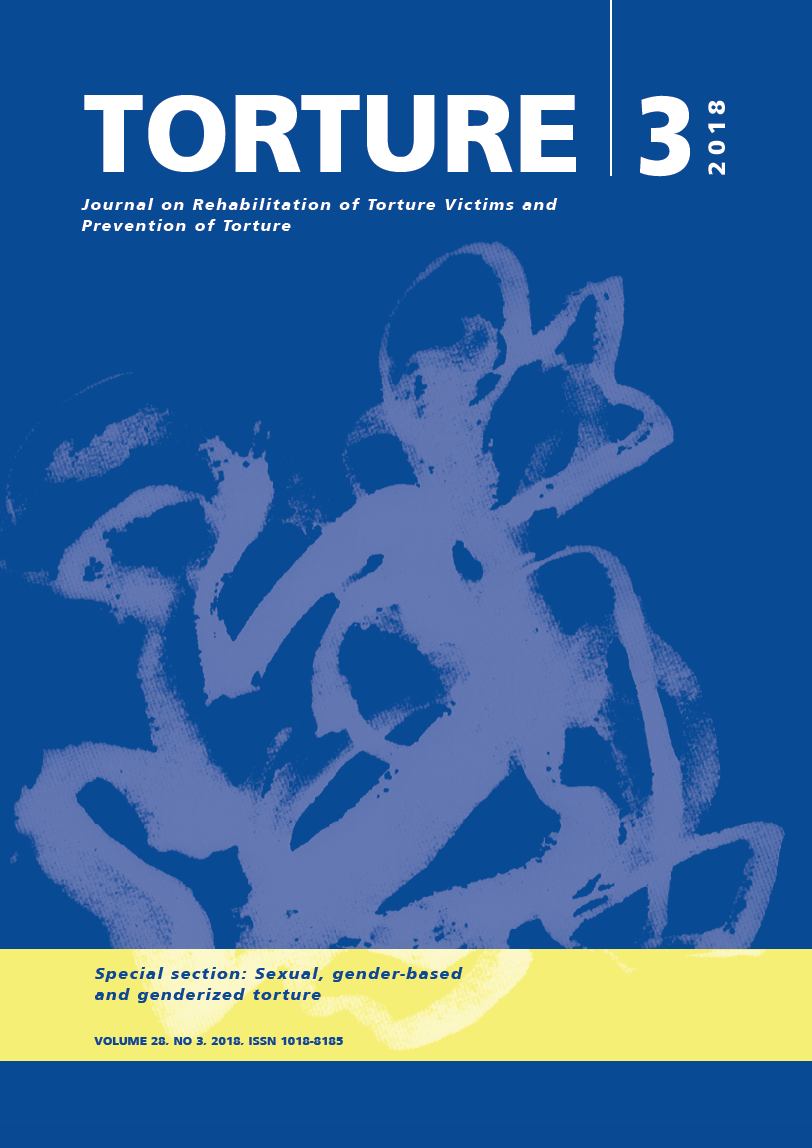Sexual torture among Arabic-speaking Shi’a Muslim men and women in Iraq: Barriers to healing and finding meaning
DOI:
https://doi.org/10.7146/torture.v28i3.111193Keywords:
barriers to healing, existential trauma, rape, sexual tortureAbstract
Introduction: Rape and sexual torture are frequent experiences among torture survivors, but relatively little is known about how victims respond to and find meaning in these experiences. Method: This study used secondary qualitative interview data from 47 male and female Shi’a Arab victims and survivors of sexual torture and rape in Saddam Hussein’s Iraq to examine how sexual torture affected them, what were the barriers to healing, how they found meaning in their experiences, and how their experiences varied by gender. Results: Respondents experienced profound psychological effects that lasted for years, including: shame, feeling broken and prematurely aged, and wanting to isolate themselves from others. Most female victims who were unmarried at the time of sexual torture never got married. Many survivors found meaning in their experiences by defining their suffering as unjust, placing their experience in the context of a hopeful narrative of Iraqi history, turning to religion, and calling for vengeance upon their persecutors. Discussion: The results of this study show how survivors of sexual torture, most of whom did not receive psychological treatment, draw upon their own resources to find meaning in existential trauma.
Downloads
Published
How to Cite
Issue
Section
License
We accept that some authors (e.g. government employees in some countries) are unable to transfer copyright. The Creative Commons Licence Attribution-NonCommercial-NoDerivatives 4.0 International (CC BY-NC-ND 4.0) covers both the Torture Journal and the IRCT web site. The publisher will not put any limitation on the personal freedom of the author to use material contained in the paper in other works which may be published, provided that acknowledgement is made to the original place of publication.


